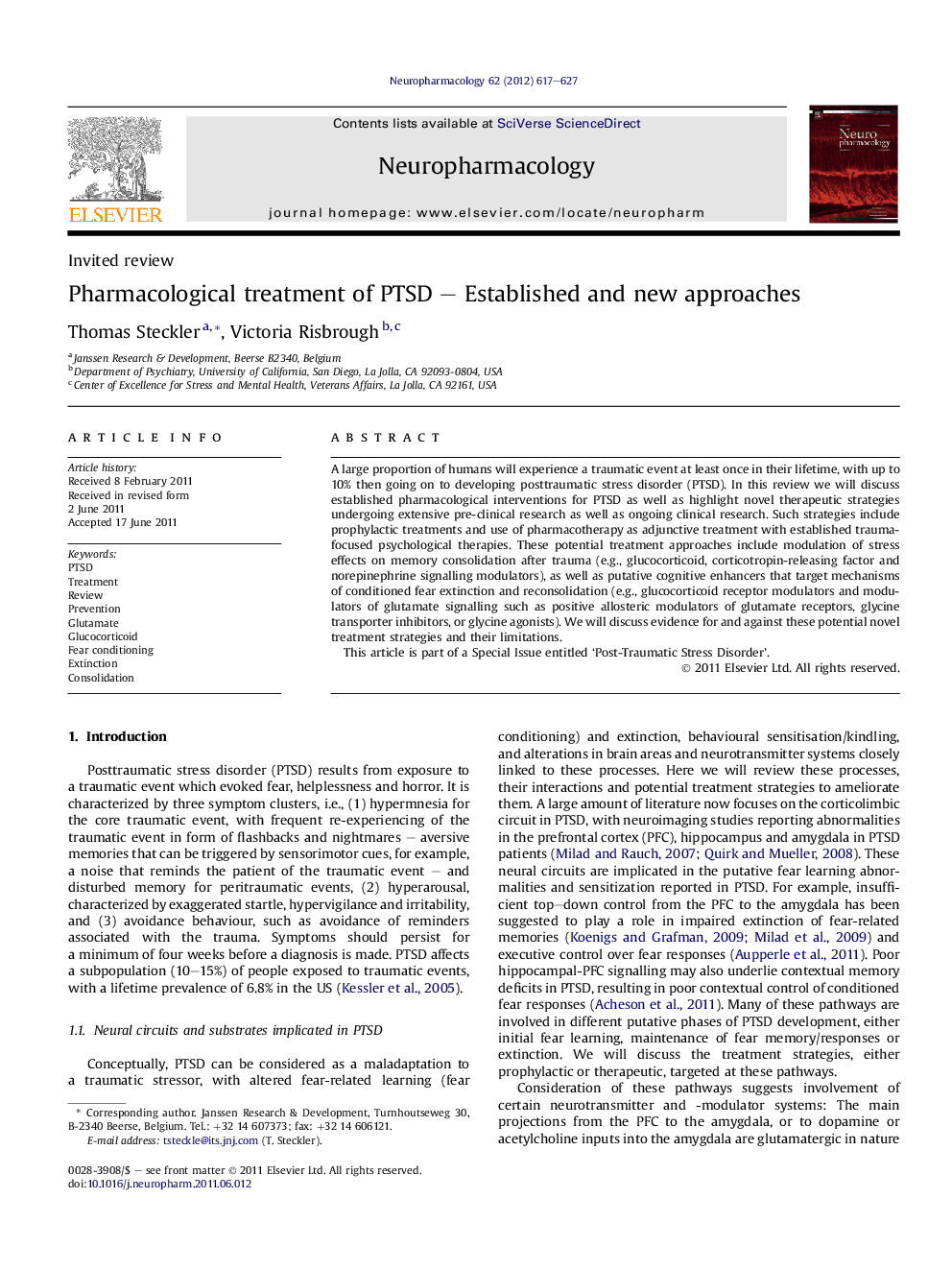| Article ID | Journal | Published Year | Pages | File Type |
|---|---|---|---|---|
| 2493759 | Neuropharmacology | 2012 | 11 Pages |
A large proportion of humans will experience a traumatic event at least once in their lifetime, with up to 10% then going on to developing posttraumatic stress disorder (PTSD). In this review we will discuss established pharmacological interventions for PTSD as well as highlight novel therapeutic strategies undergoing extensive pre-clinical research as well as ongoing clinical research. Such strategies include prophylactic treatments and use of pharmacotherapy as adjunctive treatment with established trauma-focused psychological therapies. These potential treatment approaches include modulation of stress effects on memory consolidation after trauma (e.g., glucocorticoid, corticotropin-releasing factor and norepinephrine signalling modulators), as well as putative cognitive enhancers that target mechanisms of conditioned fear extinction and reconsolidation (e.g., glucocorticoid receptor modulators and modulators of glutamate signalling such as positive allosteric modulators of glutamate receptors, glycine transporter inhibitors, or glycine agonists). We will discuss evidence for and against these potential novel treatment strategies and their limitations.This article is part of a Special Issue entitled ‘Post-Traumatic Stress Disorder’.
► PTSD currently has few proven pharmacotherapeutics. ► In this review we will discuss novel treatment targets and approaches. ► Novel approaches can be prophylactic or adjunctive. ► Pharmacological modulation of extinction or reconsolidation may hold promise.
